
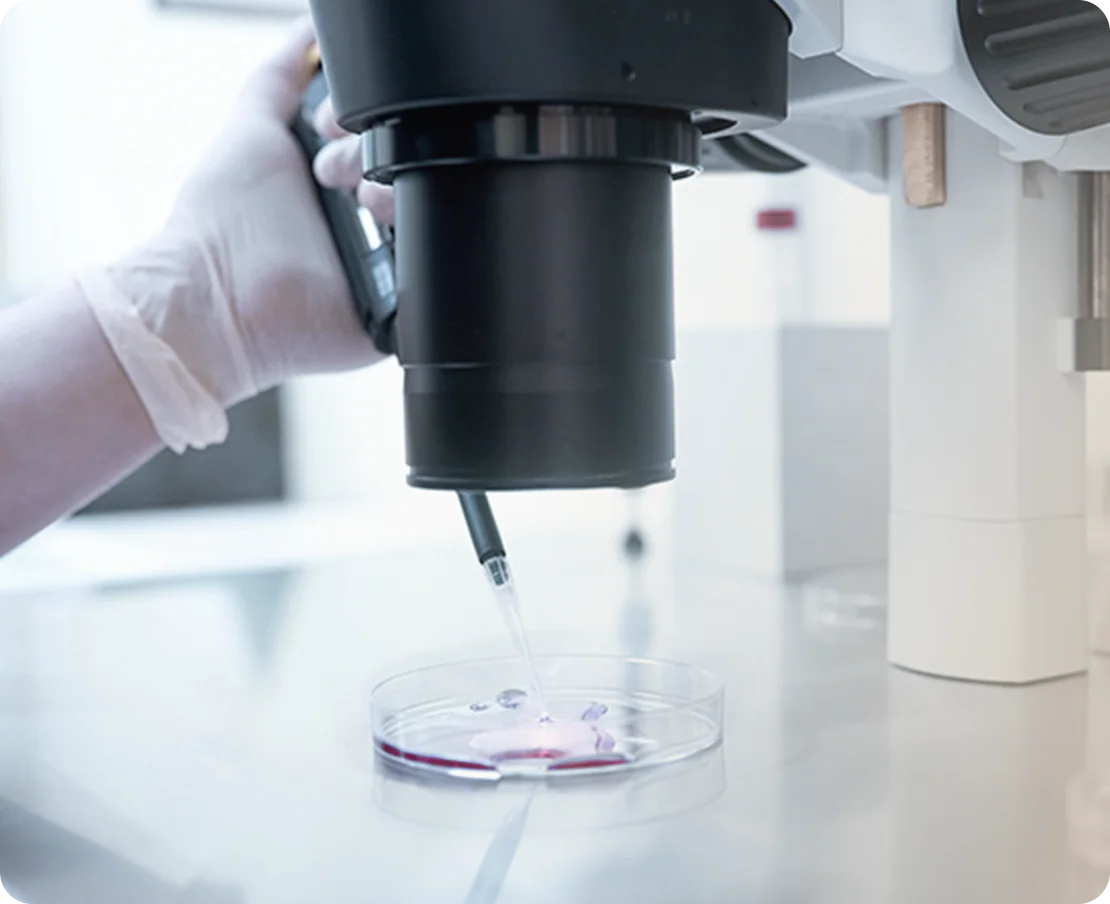
Intracytoplasmic Sperm Injection (ICSI): A Targeted Approach to Infertility within IVF
In the realm of assisted reproductive technologies (ART), in vitro fertilization (IVF) remains a cornerstone treatment for infertility. However, for couples facing specific challenges with sperm health, a specialized, third-generation ART technique known as intracytoplasmic sperm injection (ICSI) can offer a more targeted approach within the IVF process.
Infertility Treatment: ICSI
In general, ICSI treatment is recommended for patients experiencing infertility due to several factors, such as:
- Low sperm count (oligospermia)
- Poor sperm motility (asthenozoospermia)
- Abnormal sperm morphology (teratozoospermia)
- Previous failed fertilization attempts with standard IVF
- Vasectomy or unsuccessful vasectomy reversal

The ICSI Process
While sharing many similarities with traditional IVF, ICSI diverges during the crucial fertilization stage:
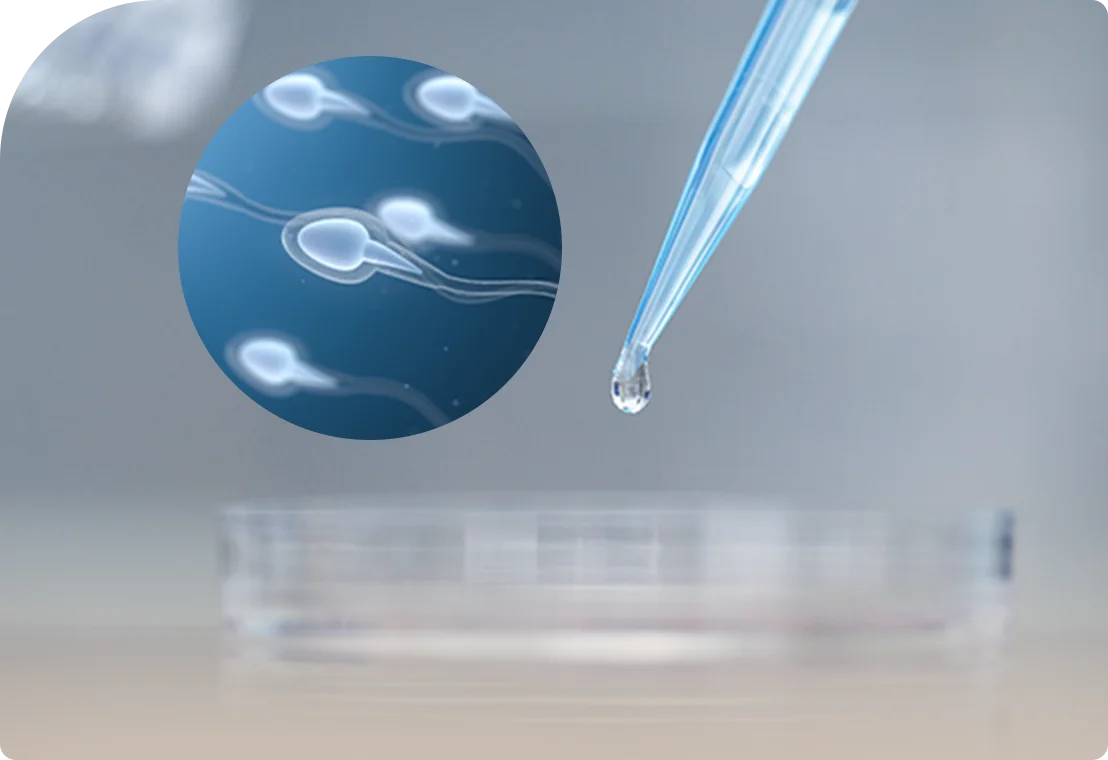
Sperm Selection
Genea's lab meticulously prepares the sperm sample, identifying and isolating the healthiest, most motile sperm.
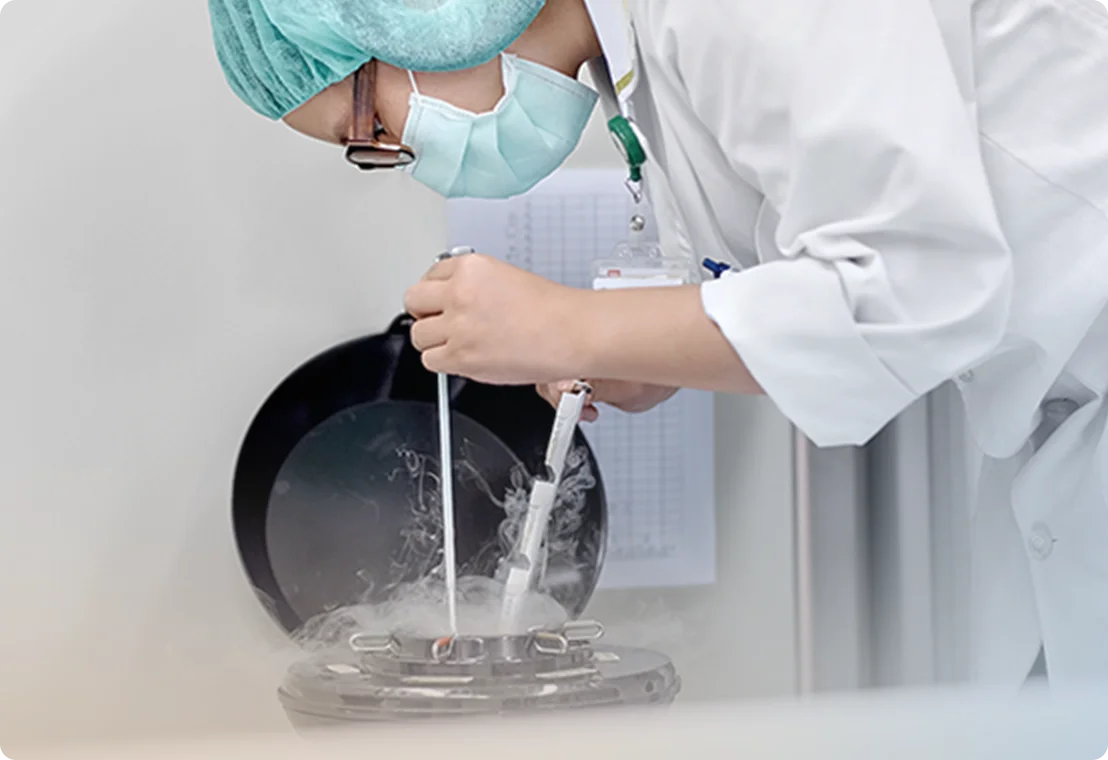
Egg Preparation
The eggs are also prepared, with their outer layer carefully removed to assess maturity and facilitate fertilization.
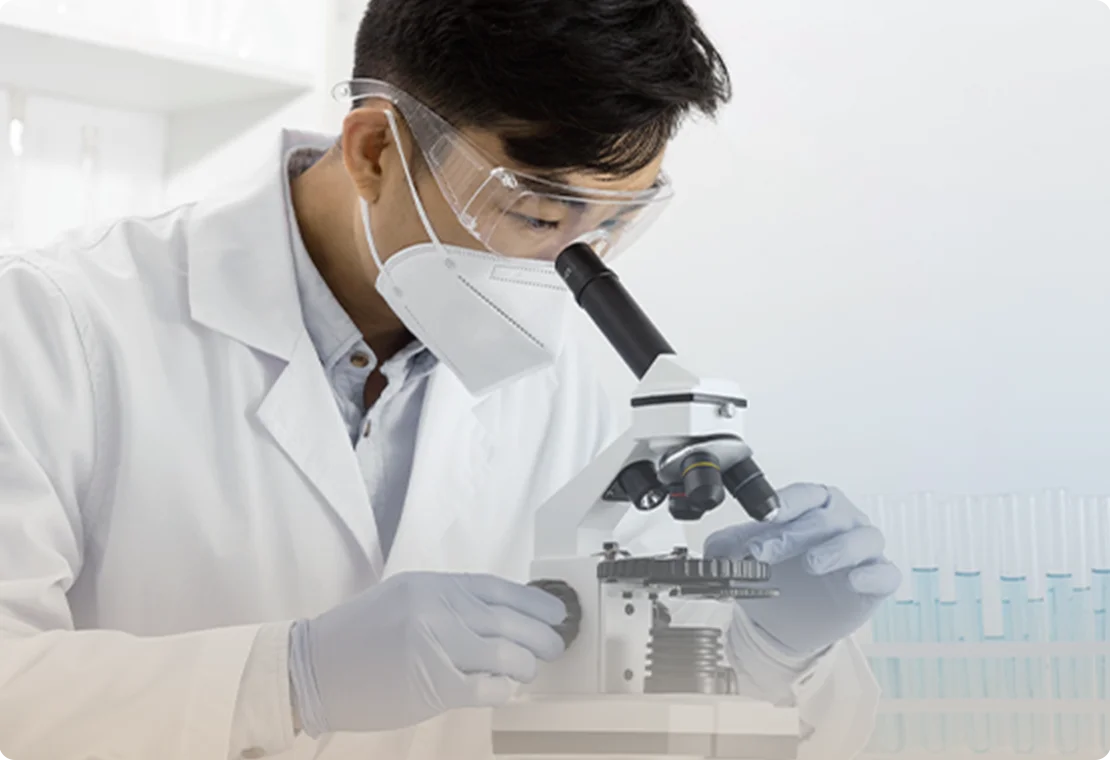
Injection
Using a specialized needle under a microscope (sperm are too tiny for the naked eye!), a single healthy sperm is picked up and injected directly into the egg.
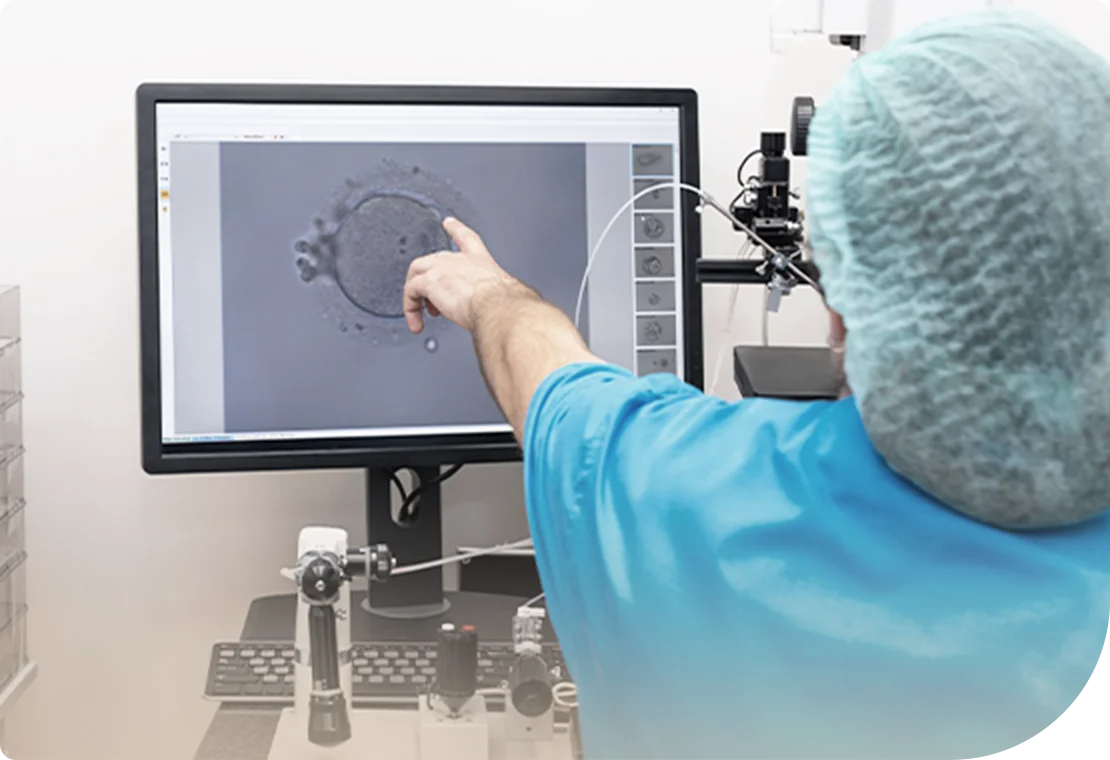
Development and Monitoring
The injected eggs are monitored overnight in an incubator. The next day, the embryologist checks for signs of successful fertilization.

Success Rates
Genea demonstrates consistently high success rates with ICSI treatment. Independent public data often reveals a significant increase in the likelihood of achieving a successful pregnancy compared to national averages in Australia when utilizing ICSI.
What Clients Say
After several unsuccessful attempts, I'm so grateful to finally have succeeded here. The doctor's guidance and the advanced technology made all the difference. I highly recommend this place to anyone struggling with fertility issues.
K.Grace (Thailand)
I spent a lot of time researching different clinics, but Genea really impressed me with their advanced technology and personalized care. The clinic has a very private and welcoming atmosphere, and the staff are amazing. I felt so well taken care of.
Jaruwan (Thailand)
I highly recommend this clinic. I was struggling with infertility for years and had a low egg count. The personalized treatment plan, including body preparation for ICSI, was very effective. I was able to produce more eggs and achieve my goal of having a baby. If you're facing similar challenges, I encourage you to consider this clinic.
Susan (Singapore)
Intracytoplasmic Sperm Injection (ICSI)
![]() Artificial insemination by injecting semen into the uterine cavity (IUI) and in vitro fertilization (IVF) were unsuccessful.
Artificial insemination by injecting semen into the uterine cavity (IUI) and in vitro fertilization (IVF) were unsuccessful.
![]() Artificial insemination in the laboratory (allowing them to mix together).
Artificial insemination in the laboratory (allowing them to mix together).
![]() Take one of the best-selected sperm and mix it with an egg.
Take one of the best-selected sperm and mix it with an egg.
![]() Highest chance of success compared to other treatment methods.
Highest chance of success compared to other treatment methods.
ICSI vs. IVF
ICSI vs. IVF
In Vitro Fertilization (IVF)
![]() Artificial insemination using semen injection into the uterine cavity (IUI) was unsuccessful.
Artificial insemination using semen injection into the uterine cavity (IUI) was unsuccessful.
![]() Artificial insemination using semen injection into the uterine cavity (IUI) was unsuccessful.
Artificial insemination using semen injection into the uterine cavity (IUI) was unsuccessful.
![]() Select the perfect egg from the female and choose the sperm based on the man's strength. Allow the sperm to swim down and surround the egg. Let the sperm compete to penetrate the egg membrane by themselves to achieve fertilization.
Select the perfect egg from the female and choose the sperm based on the man's strength. Allow the sperm to swim down and surround the egg. Let the sperm compete to penetrate the egg membrane by themselves to achieve fertilization.
![]() High chance of success
High chance of success
ICSI FAQs
- Home Home
- Why Genea Why Genea
- Services Services
- Package Prices Package Prices
- Specialists Specialists
- Success Stories Success Stories
- International Patients International Patients
- Contact Us Contact Us
Services

